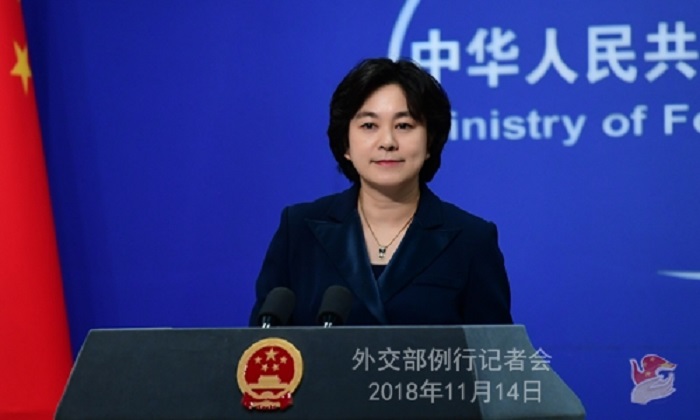Beijing, China on Saturday opposed Prime Minister Narendra Modi’s visit to Arunachal Pradesh and said such actions would “escalate” and “complicate” border dispute.
Modi on Saturday inaugurated several developmental projects during his one-day visit to Arunachal Pradesh, which China claims as its own and dubs South Tibet.
“China’s position on the Sino-Indian border issue is consistent and clear. The Chinese government has never recognised the so-called Arunachal Pradesh and resolutely opposes the activities of Indian leaders to the eastern section of the Sino-Indian border,” Chinese Foreign Ministry spokesperson Hua Chunying said here.
Beijing said such actions would also hurt the progress made by both sides, especially after the pathbreaking meet between Modi and Chinese President Xi Jinping in Wuhan last year.
“China urges the Indian side to bear in mind the common interests of the two countries, respect the interests and concerns of the Chinese side, cherish the momentum of improvement in bilateral relations and refrain from any action that may lead to the escalation of disputes or complicate the boundary question,” she added.
Beijing resents and slams visits by Indian leaders and foreign dignitaries to Arunachal Pradesh, a state in India’s northeast at the heart of Sino-Indian border dispute.
In 2017, Tibetan spiritual leader Dalai Lama’s visit to Arunachal Pradesh infuriated China, prompting it to rename some towns in the Indian state.
China and India, who fought a brief but bloody war in 1962, have a 3,444-km long boundary dispute.
The two sides, which have seen several skirmishes since then, almost came to blows in 2017 over building of a road by the Chinese at Doklam, an area claimed by Bhutan and close to an arterial Indian highway.
However, New Delhi and Beijing have tried to repair the damage and the ties have been on the upswing after Modi and Xi had an icebreaking meet last year.
Both the leaders pledged to keep the border quiet and peaceful.










